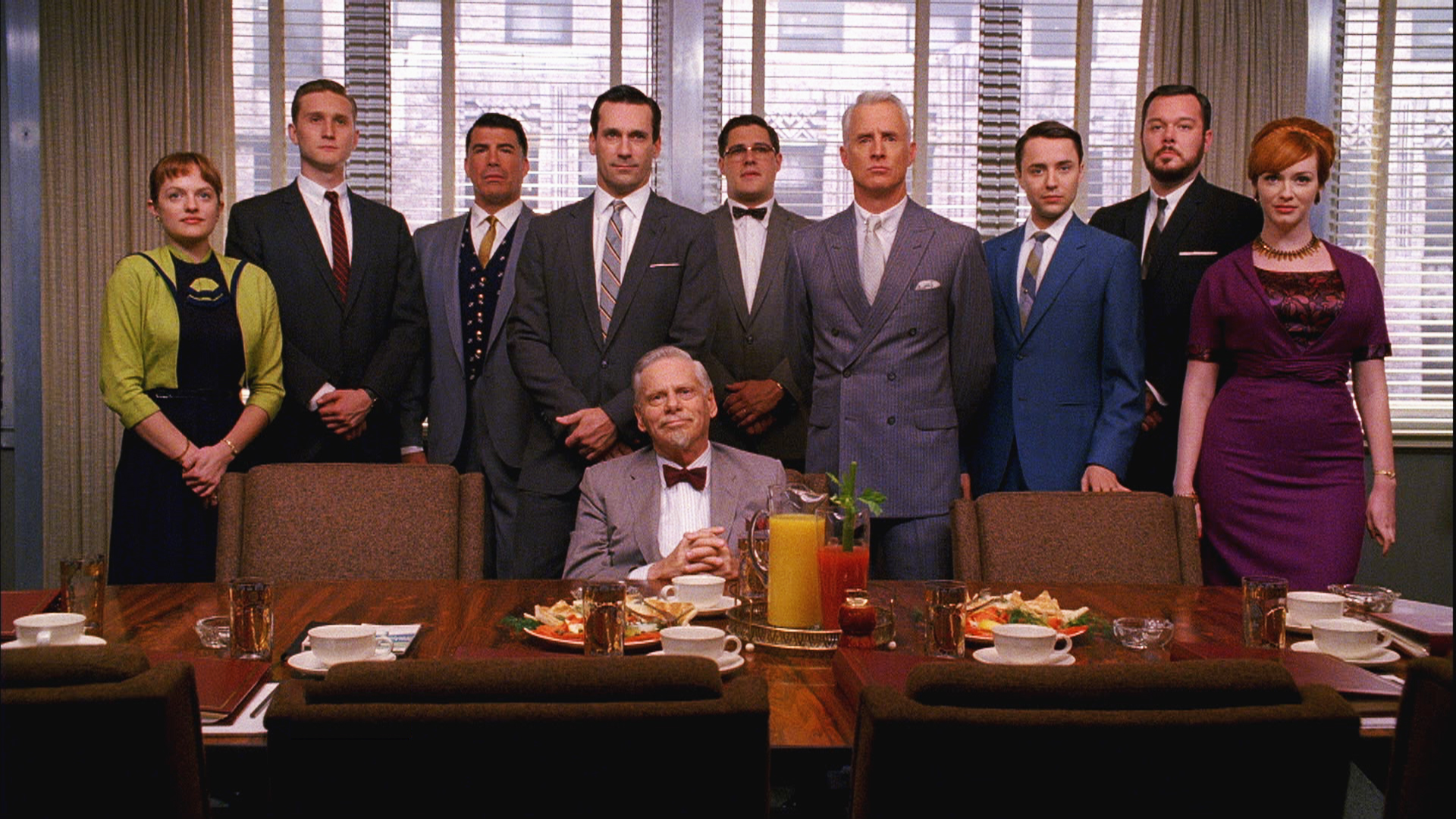
It has been two years since the final episode of Mad Men aired on AMC ad I still don’t think that I fully appreciate all the show accomplished in its seven-season run. By turns it was a story about one man, Don Draper, and a larger narrative about the radical changes throughout the 60s. Many times, Don was not even the most interesting character on the screen. That role shifted constantly from Peggy’s dynamic journey, rising from a lowly secretary position, to Joan’s search for balance between work and the traditional notions of womanhood. Unlike many shows, there was no separation between the office and the home, brought together by the men and women who lived and worked there. This resulted in characters that were never caricatures or simply symbols. They often held contradictory beliefs, acted against their own self-interests, or relapsed into old behaviors. Don and his cohorts at the ad agencies may have called themselves, “mad men”, but in the end, they were simply human, with human vices. Thus, the show never needed to resort to depicting anything more dramatic than real life and all its messiness.

Often glimpses of the past are solely produced to make the present seem more palatable. We smile at their backwards ways and smugly assume that our lives are better, our morals purer. Yet, these productions only serve to peddle the false notion of ceaseless forward progress. Some changes are simply old beliefs returned under the disguise of advancement. Even real change is not always for the better. It would have been so easy for “Mad Men” to fall into one of these traps. It would have been so easy to point at the people of the 60s and laugh at their boozy, sexist, racist views and called them lesser beings. The show, instead, sought to examine the system that produced those men and women, the one that shoved them into tight suits and beautiful dresses, and ask how those roles had come about. The assumptions and unseen regulations of the 60s drove these characters and their reactions to it defined their lives. Don Draper, as first introduced, seems to be an exemplary member of the system. He is wealthy and successful, handsome and with the slick hair and the beautiful wife to prove it. His life inspires envy in those beneath him, such as Pete Campbell, and even his equals, such as Robert Sterling. It is a veneer as shiny and false as the ads that he produces. We do not cheer for the characters to see them to succeed at their jobs, find love, or achieve any of the other traditionally accepted markers of happiness. Instead, we are left hoping that somehow, some way, they will find the self-understanding that seems to elude all of us. Over the seasons, those working at Sterling-Cooper became our companions and our personal mirrors, their struggles reflecting ours. “Mad Men” will continue to be a cultural phenomenon, far past the era it portrayed.


Leave a Reply
Be the First to Comment!